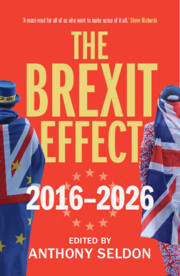Refine search
Actions for selected content:
3410455 results
Communism in an Enchanted World
- Chinese Folk Religion under Mao Zedong
- Coming soon
-
- Expected online publication date:
- May 2026
- Print publication:
- 31 May 2026
-
- Book
- Export citation
The Cultural Shaping of Emotion
- Coming soon
-
- Expected online publication date:
- May 2026
- Print publication:
- 30 April 2026
-
- Book
- Export citation

Women's Health in Primary Care
- Coming soon
-
- Expected online publication date:
- May 2026
- Print publication:
- 31 May 2026
-
- Book
- Export citation
Supernatural Politics
- Mao Zedong and the Drive to Eliminate Religion in China, 1949–79
- Coming soon
-
- Expected online publication date:
- May 2026
- Print publication:
- 31 May 2026
-
- Book
- Export citation

The Cambridge Handbook of Ethnic and Racial Discrimination and Youth Development
- Coming soon
-
- Expected online publication date:
- May 2026
- Print publication:
- 31 May 2026
-
- Book
- Export citation

Rethinking Climate Policy
- Innovation and the Economics of Resource Creation
- Coming soon
-
- Expected online publication date:
- May 2026
- Print publication:
- 31 May 2026
-
- Book
- Export citation

Making Babies Count
- The Sheppard-Towner Act and Building the Modern Administrative State
- Coming soon
-
- Expected online publication date:
- May 2026
- Print publication:
- 31 May 2026
-
- Book
- Export citation
Elizabeth Bishop's Styles of Writing
- Coming soon
-
- Expected online publication date:
- May 2026
- Print publication:
- 31 May 2026
-
- Book
- Export citation

Unanswered Questions in Psychiatry
- Coming soon
-
- Expected online publication date:
- May 2026
- Print publication:
- 31 May 2026
-
- Book
- Export citation

The Brexit Effect, 2016–2026
- Coming soon
-
- Expected online publication date:
- May 2026
- Print publication:
- 18 June 2026
-
- Book
- Export citation

The Archaic and Early Classical Greek World
- Using Coins as Sources
- Coming soon
-
- Expected online publication date:
- May 2026
- Print publication:
- 31 May 2026
-
- Textbook
- Export citation

Questions for the Final FFICM Structured Oral Examination
- Coming soon
-
- Expected online publication date:
- May 2026
- Print publication:
- 31 May 2026
-
- Book
- Export citation

British Black and Asian Poetry
- Race, Aesthetics and Politics 1970–2023
- Coming soon
-
- Expected online publication date:
- May 2026
- Print publication:
- 31 May 2026
-
- Book
- Export citation

Ancient Greek Democracies
- Coming soon
-
- Expected online publication date:
- May 2026
- Print publication:
- 31 May 2026
-
- Book
- Export citation

A Concise History of the European Union
- Coming soon
-
- Expected online publication date:
- May 2026
- Print publication:
- 31 May 2026
-
- Book
- Export citation

The Arthur Miller Tapes
- A Life In His Own Words
- Coming soon
-
- Expected online publication date:
- May 2026
- Print publication:
- 07 May 2026
-
- Book
- Export citation

Injurious Law
- Nuclear Exposure and the Harms of Redress
- Coming soon
-
- Expected online publication date:
- May 2026
- Print publication:
- 31 May 2026
-
- Book
- Export citation
Religion, Rebellion and Violence in Ireland, c. 1603-1649
- Coming soon
-
- Expected online publication date:
- May 2026
- Print publication:
- 31 May 2026
-
- Book
- Export citation

Living Precariously in the Roman World
- A Social Archaeology of Inequality
- Coming soon
-
- Expected online publication date:
- May 2026
- Print publication:
- 31 May 2026
-
- Book
- Export citation
Diodoros of Sicily: Bibliotheke Historike
- Translation, with Introduction and Notes
- Coming soon
-
- Expected online publication date:
- May 2026
- Print publication:
- 31 May 2026
-
- Textbook
- Export citation
